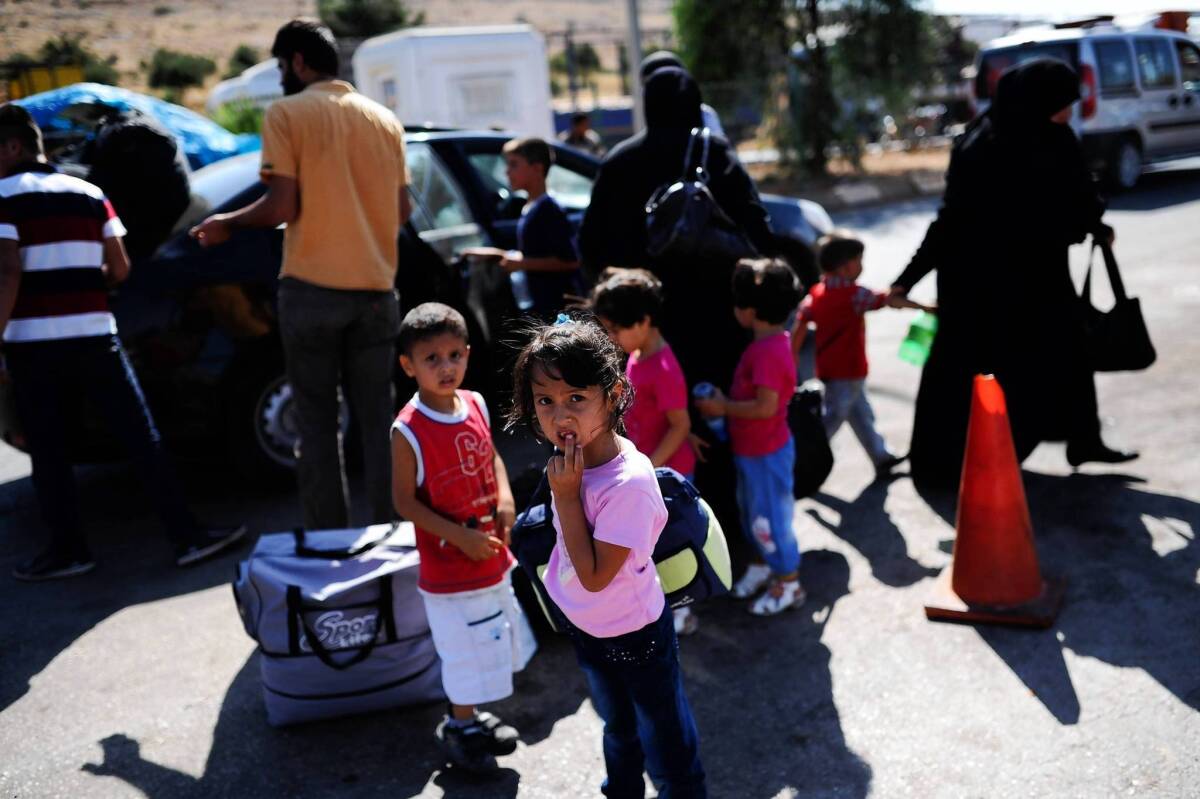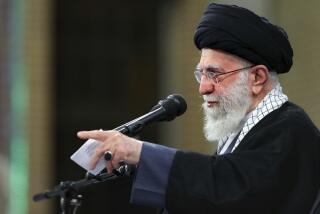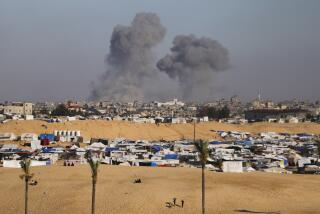Syrian rebels feel let down by delay on U.S. strikes

- Share via
CAIRO — Syrian rebel commanders preparing for possible U.S. missile strikes against the government said Saturday that they were concerned President Obama’s decision to seek congressional approval would mean one more broken promise of help.
Obama’s announcement came late in the day in the Middle East, and there was no immediate reaction from authorities in Damascus, the Syrian capital. The government labeled as lies U.S. accusations that Syria killed more than 1,400 people, including 426 children, in an Aug. 21 chemical attack on the outskirts of Damascus.
The delay appeared to be at least a minor victory for Syrian President Bashar Assad.
Rebel commanders say the limited campaign Obama has described in recent days is insufficient, and delaying it further will only allow the Syrian government to protect its military assets.
“They are all playing us,” said 1st Lt. Muhammad Sheikh, who leads a rebel militia in Rastan in Homs province, referring to the international community. “The Syrian people were very hopeful.”
Musab Abu Qatada, spokesman for the Damascus military council of the Free Syrian Army rebel group, said the lengthy debate in the West had allowed the government to move weapons and soldiers into schools, empty residential buildings and underground garages.
An entire regiment and intelligence unit has been moved into university dorms and more than a dozen schools throughout the capital, he said.
Though the Supreme Military Council, the nominal head of the Free Syrian Army, is in regular contact with U.S. intelligence and military representatives, no coordination between the two sides is actually expected, according to rebel commanders.
The rebel military councils in Dara, in southern Syria, and Damascus reported receiving small daily weapons shipments in the last week, in what one member of the Dara council said was to allow rebels “to continue the work after the airstrikes.”
As has often been the case though, rebels complained that fewer weapons than expected were received. They were insufficient to help them seize military bases and installations after the strikes, said Lt. Col. Mohammad Khair Harbaat of the Dara council.
Rebels received dozens of antitank weapons, antiaircraft guns, missiles and small arms, he said. A rebel near the Turkish border with Syria also reported an uptick of weapon shipments into the country in the last few days.
Rebels long have received shipments of weapons from U.S. allies in the region. Washington announced this summer, after determining that Syria had used chemical weapons in previous cases, that it would start sending arms directly to the rebels. Insurgent groups say they have yet to receive them.
Jamal Maroof, commander of the Martyrs of Syria Brigade in the north, said he thought the strikes were intended only to get both sides to reach a peaceful solution.
“The position [world leaders] are taking is just to satisfy themselves; it is not to relieve the oppression from the Syrian people,” he said. “It is just to lessen the pressure on them to act.”
The delay also opened up the possibility that before Congress acts, U.N. experts who visited Damascus to look for evidence of chemical weapons use will issue their findings. The inspectors left Syria on Saturday, returning to Europe with environmental and biological samples, along with other evidence to be analyzed.
The U.N. analysis could take up to three weeks, according to the world body, but U.N. officials have said they would try to expedite it. Though the report will not apportion blame for the apparent attack, experts say the findings could provide additional clues about who may have released toxic materials.
Maroof and others also expressed concern that the United States would use missile strikes to target armed Islamist groups, some of whom are linked to Al Qaeda.
Abu Firas Halabi, a spokesman for Al Tawheed Brigade near Aleppo, said opposition fighters are likely to remain on alert around military sites that could be targets.
“The fighters are watching now, and depending on the strike they will act accordingly,” he said.
Abdulrahim reported from Cairo and McDonnell from Beirut.
More to Read
Sign up for Essential California
The most important California stories and recommendations in your inbox every morning.
You may occasionally receive promotional content from the Los Angeles Times.














